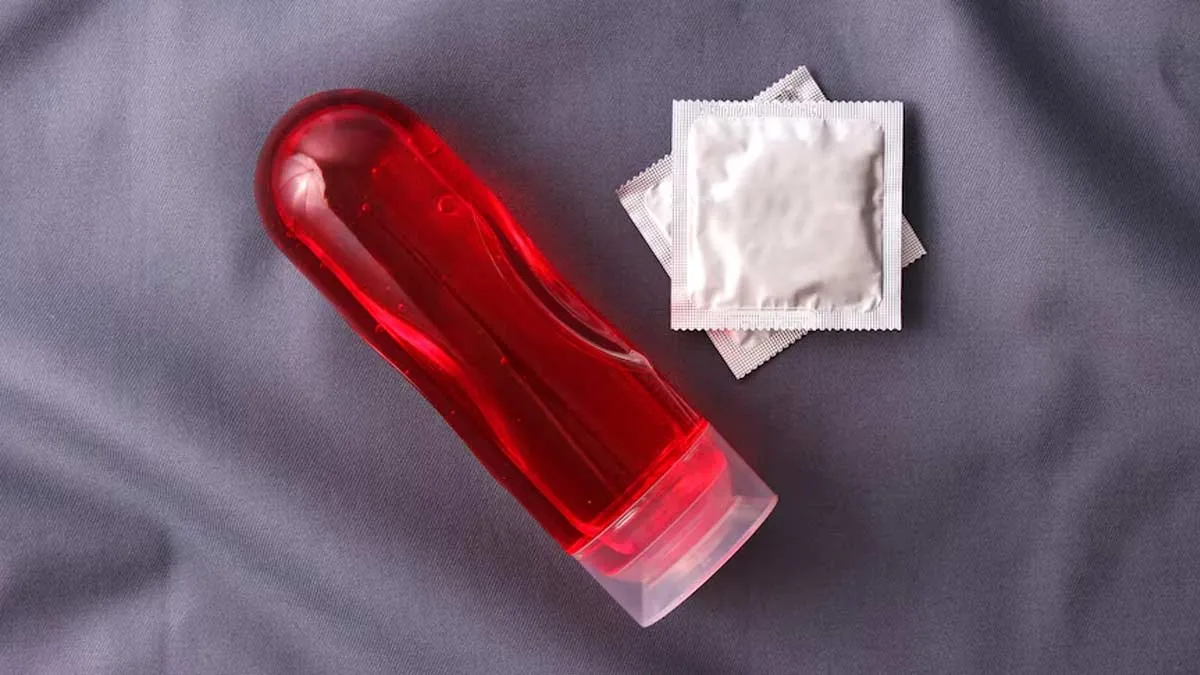
When it comes to fertility and conception, even the smallest details can make a big difference. While lubricants or lubes are common and talked about concerns in women’s health, one question that often comes up for couples trying to conceive is whether using lubricant is safe for sperm and male fertility in general. While lubricants can make intimacy more comfortable, it's important to understand their potential effects on sperm health and motility.
Table of Content:-
In an exclusive interaction with Onlymyhealth, Dr Vikas Yadav, Senior Consultant - Department of Obstetrics, Gynecology and IVF Specialist, Shardacare - Healthcity, shared what you need to know before reaching for that bottle.
Can Lubricants Impact Sperm?
Lubricants are designed to reduce friction during sexual activity, but many over-the-counter options contain ingredients or have properties that can hinder sperm function. Dr Yadav explained that the two primary ways lubricants can affect sperm are:

Also Read: Can You Remedy Declining Sperm Count? Expert Answers
1. pH Levels
Sperm survive in a slightly alkaline environment, but many lubricants are more acidic. This pH mismatch can impair sperm’s ability to sustain and move effectively.
2. Osmolality
Some lubricants have high osmolality, meaning they contain a high concentration of dissolved substances. This can draw water out of sperm cells, causing them to become dehydrated and lose viability.
Types Of Lubricants To Avoid
Now that we know that lubes lead to a decline in sperm quality, it is important to consider that while browsing the lubricant aisle, steer clear of the following types if you’re trying to conceive:
- Flavoured or warming lubricants as they often contain sugars and chemicals that can be harmful to sperm.
- Petroleum-based products due to their thick and sticky texture which can physically obstruct sperm movement.
- Paraben-containing lubricants as that may negatively impact hormone balance and sperm health.

Fertility-Friendly Alternatives To Lubes
Fortunately, not all lubricants are created equal. Several products are specifically designed to support conception. These are known as fertility-friendly lubricants. They are made in a way of natural cervical mucus that helps sperm travel through the reproductive tract. Dr Yadav shared a few key features of these lubricants. These may include:
- These products have a pH range that aligns with the natural environment of the female reproductive system.
- Fertility-friendly lubricants match the osmolality of body fluids to protect sperm integrity.
Also Read: Do Hip Thrusts Impact Fertility? Expert Weighs In
Tips For Couples Trying To Conceive
If you're actively trying to conceive, here are some additional expert-approved tips to maximise your chances:
1. Go Natural When Possible
The best lubricant for sperm health is often your body’s natural cervical mucus. Staying hydrated and understanding your ovulation cycle can help promote its production.
2. Choose the Right Lubricant
If additional lubrication is needed, always opt for a product labelled as sperm-friendly.
3. Avoid Harsh Ingredients
Read labels carefully to avoid parabens, glycerin, and other potentially harmful substances.
4. Communicate With Your Partner
Open discussions about fertility and lubricant choices can ease stress and help you make informed decisions together.
Bottomline
Using lubricants doesn’t have to be off the table when trying to conceive, but it’s crucial to choose products that are designed with fertility in mind. Therefore, by understanding how lubricants affect sperm and selecting fertility-friendly options, you can create a more supportive environment for conception.
[Disclaimer: This article is just for informational purposes. If you're concerned about your fertility or have questions about products that might be right for you, consulting a healthcare provider is always a good idea. They can provide personalised advice based on your medical history and reproductive goals.]
Also watch this video
How we keep this article up to date:
We work with experts and keep a close eye on the latest in health and wellness. Whenever there is a new research or helpful information, we update our articles with accurate and useful advice.
Current Version
